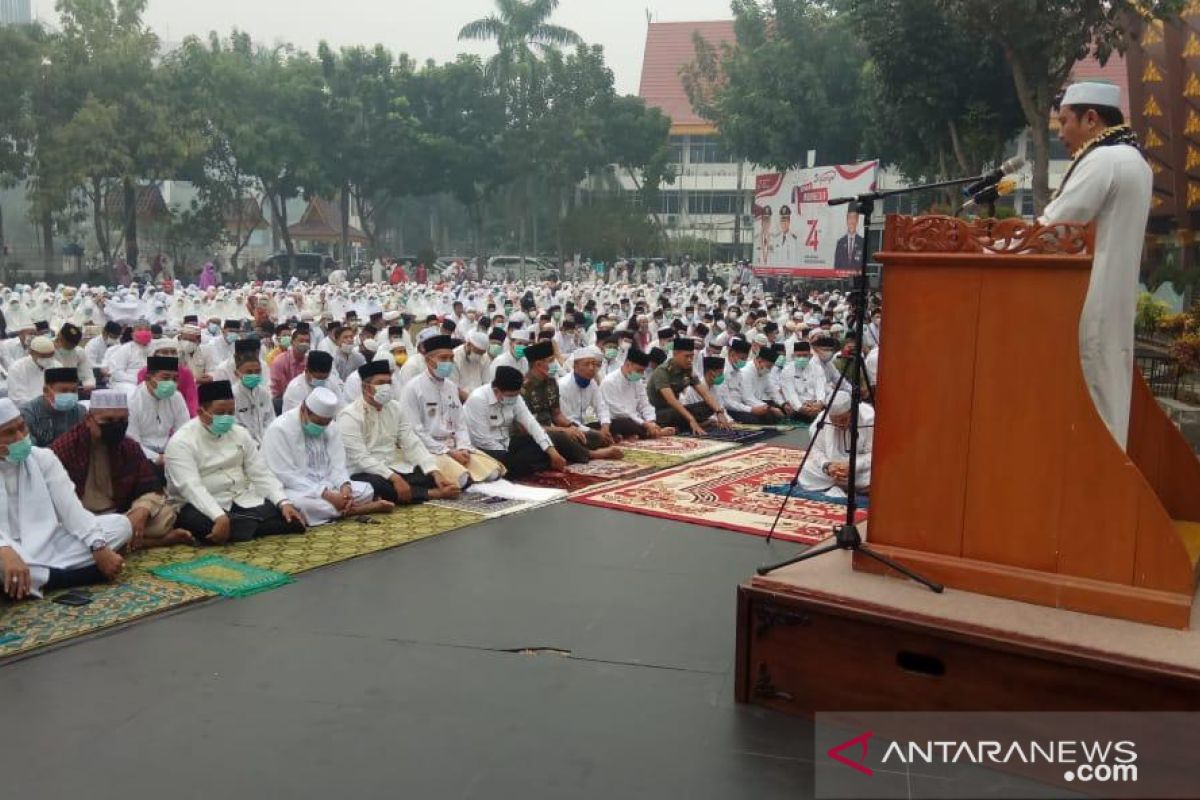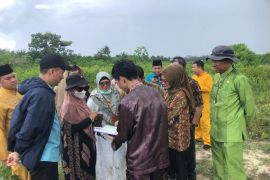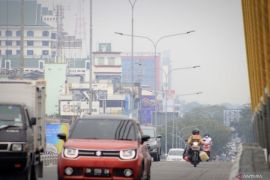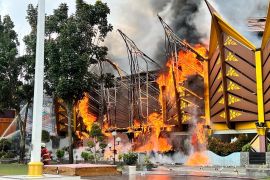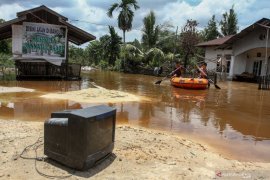Pekanbaru, Riau (ANTARA) - Forest fire-induced air pollution in Pekanbaru, Riau, has reached a hazardous level, thereby compelling some citizens to evacuate to other cities along with their families.
"We decided to evacuate to Jakarta, as we cannot stand the haze (in Pekanbaru)," Sylviawati, a 27-year-old resident, stated at the Sultan Syarif Kasim II Airport in Pekanbaru, Friday.
Sylviawati and her husband had decided to leave Pekanbaru temporarily after taking into account the negative impact of the haze on their children's health. “Maybe we will stay in Jakarta for 10 days. Moreover, the schools are still shut down," Sylviawati stated.
Air quality in the city is deteriorating, and the thick yellow smog has triggered respiratory ailments.
Another resident, Irfan, 36, revealed that he had evacuated his wife and two children to Payakumbuh in West Sumatra.
"I have called my family in Payakumbuh, where the sun still shines brightly and the sky's blue," he remarked, adding that reaching Payakumbuh by car would not be expensive.
The decision to evacuate the family is deemed as the best-possible solution.
"My wife complained that smog had penetrated her working room and caused eye irritation. She has to wear a face mask while working indoors. She decided to take a leave," he stated.
The air quality in Pekanbaru and some regions in Riau has reached a hazardous level due to thick smog emanating from forest fire. Until 3 p.m. local time on Friday, thick smog continued to shroud Pekanbaru.
On Friday morning, visibility in the city had dropped to only 300 meters.
Related news: Forest fires cause unhealthy air quality in Pekanbaru, Riau
Related news: Some 300 families in Riau flee homes due to wildfire
The Meteorology, Climatology, and Geophysics Agency (BMKG) station in Pekanbaru had spotted 1,319 hotspots indicative of forest fires across Sumatra Island at 6 a.m. local time on Friday.
South Sumatra recorded the highest number of hotspots, reaching 537, followed by 440 in Jambi, and 239 in Riau.
In Riau, 127 hotspots were detected in Indragiri Hilir, 31 in Indragiri Hulu, 30 in Pelalawan, 18 in Rokan Hilir, 11 each in Kuansing and Kampar, seven in Bengkalis, three in Siak, and one in Dumai City.
EDITED BY INE


